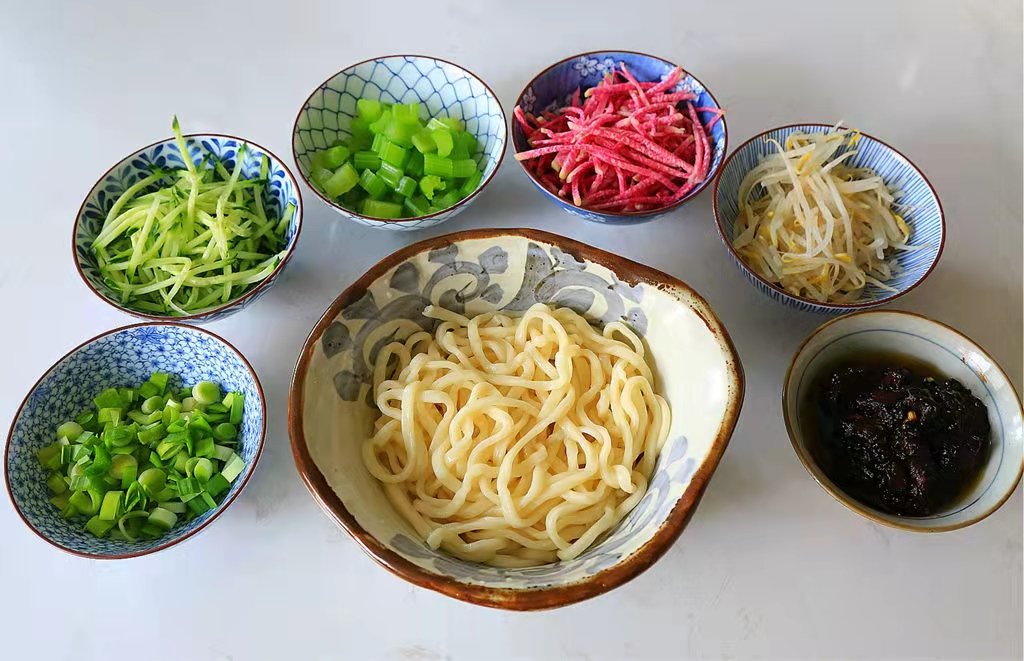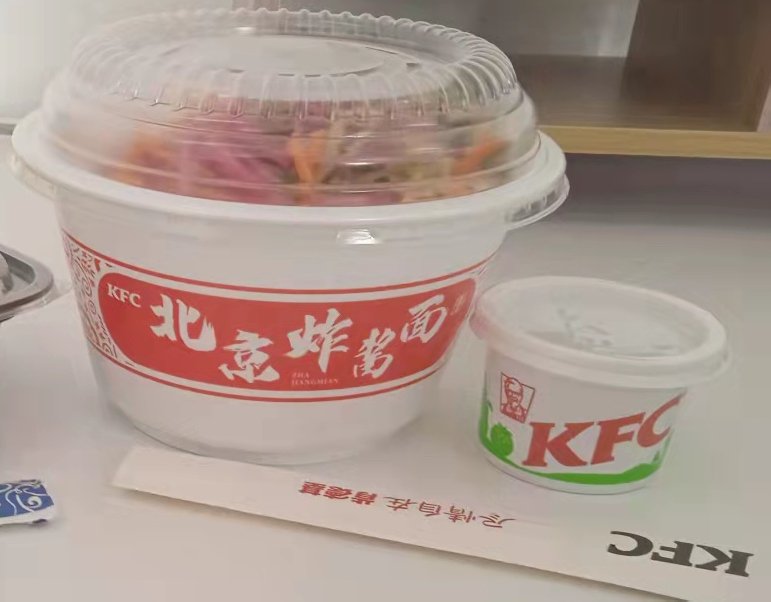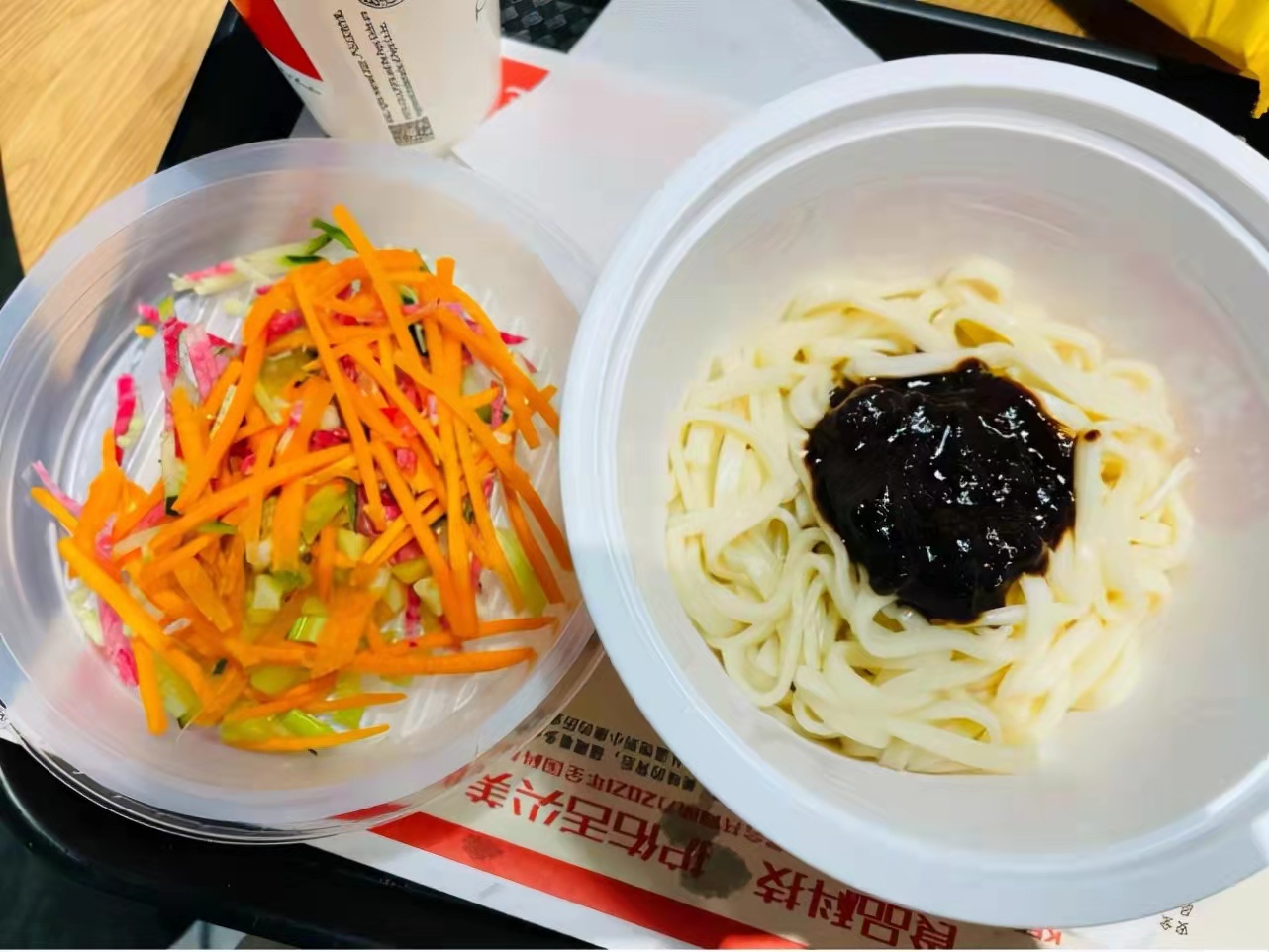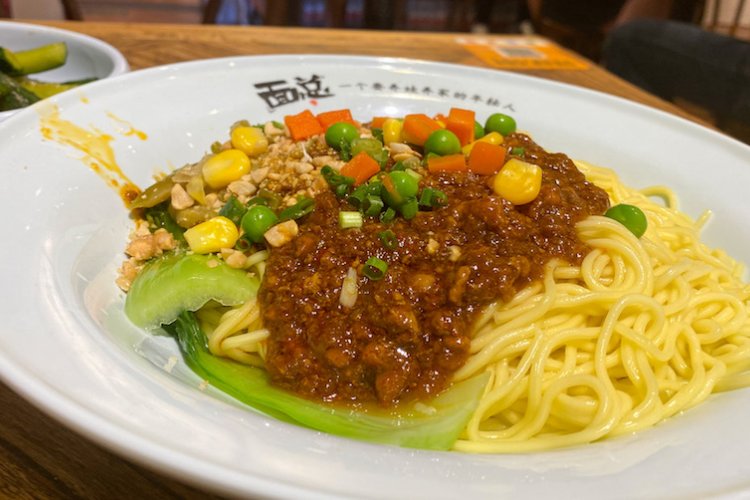Fast Food Watch: Can KFC's Zhajiangmian Stand Up to the Real Deal?
KFC has gone all noodly here in China, cranking out two classic regional noodle dishes in the past few weeks. First it was reganmian of Wuhan fame, and then, as of last week, Beijing’s 炸酱面 zhájiàngmiàn.

So what is zhajiangmian? It’s a generally dry noodle dish with a sauce made from chunks of ground pork and soybean paste, mixed with a generous helping of diced vegetables like pickled radish, beansprouts, cucumber and celery. The fun thing about zhajiangmian: All the ingredients come separate from the noodles, making it the ultimate DIY Beijing snack.
While the history of this capital cuisine is a little bit harder to pinpoint than its distant – and more pungent – relative douzhi’er, its popularity in Beijing and Northern China is hard to overstate. The dish was even taken to nearby neighbors like Korea and Japan by Chinese immigrants, where it's still popular to this day – even getting a nod in Oscar-winning film Parasite, in which its instant noodle form jajiangmyeon gets combined with spicy seafood udon noodles and premium steak to make “ram-don.”
Due to its popularity in Beijing, there are noodle shops a-plenty that mix zhajiangmian, so does KFC have what it takes to stand up to locals? Let's find out!
Taste Test
The short answer: not really. When news dropped about KFC’s latest foray into noodles, we ordered a few packages to try at the office – which cost RMB 26 on their own. For something to compare it to, we also ordered a bowl from Lao Beijing Zhajiangmian (which cost a more reasonable RMB 17).

KFC’s presentation was nice. It comes in a white and red plastic bowl with veggies and sauce separate from the noodles – a plus for them there. Old Beijing, on the other hand, had their veggies and noodles mixed.
But then came the sauce. Whereas Old Beijing had a large plastic container with gorgeous chunks of tender pork intermingled with rich soybean paste, the KFC container had maybe a quarter of that, which made mixing the sauce with KFC’s noodles a chore, and one that resulted in mostly dry cold noodles that didn’t have an even sauce coating to save its life.

This brings us to the noodz themselves. While KFC’s noodles were bigger – something our local Beijing colleagues say is a traditional feature of zhajiangmian – Old Beijing’s noodles still had this lovely wheat twang that made their dish all the more enjoyable.

The Verdict
KFC’s zhajiangmian is best avoided if you’re looking for true Beijing flavor. Old Beijing certainly delivers on all fronts. That being said, we know it’s not the only classic zhajiangmian joint, so here are a few others you can try.
Hai Wan Ju, Chaoyang Branch 海碗居(朝阳店)
36 Songyu South Road, Chaoyang District
朝阳区松榆南路36号
Siji Minfu Zhajiangmian 四季民福炸酱面
8 Langfang Ertiao, Dazhalan, Xicheng District
西城区大栅栏廊坊二条8号
Wo Nainai Zhajiangmian, Jiushi Haochi! 我奶奶炸酱面,就是好吃!
1221 2/F Bldg 1, Sanlitun SOHO, Chaoyang District
朝阳区三里屯SOHO1号商杨2层1221号
If you want to give KFC's zhajiangmian a try, you can find it in their WeChat mini-program after 11am each day, although as of press time, it doesn't seem to be available on other delivery apps. That being said: Don't give your money to a big brand on this one, stick to the local joints to truly enjoy this time-honored, toothsome Beijing snack.
READ: Down with Douzhi'er: My Experience with Beijing's Strangest Breakfast
Images: sunnews.cc, douguo.cn, The Beijingers







